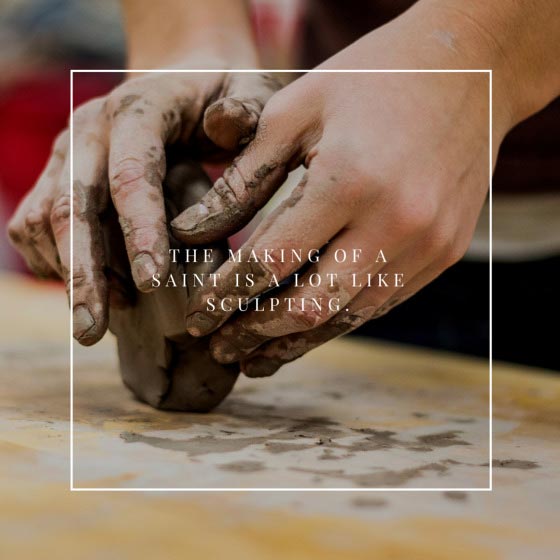
First Reading: Deutoronomy 4:1, 5-9
Moses spoke to the people and said:
“Now, Israel, hear the statutes and decrees
which I am teaching you to observe,
that you may live, and may enter in and take possession of the land
which the LORD, the God of your fathers, is giving you.
Therefore, I teach you the statutes and decrees
as the LORD, my God, has commanded me,
that you may observe them in the land you are entering to occupy.
Observe them carefully,
for thus will you give evidence
of your wisdom and intelligence to the nations,
who will hear of all these statutes and say,
‘This great nation is truly a wise and intelligent people.’
For what great nation is there
that has gods so close to it as the LORD, our God, is to us
whenever we call upon him?
Or what great nation has statutes and decrees
that are as just as this whole law
which I am setting before you today?
“However, take care and be earnestly on your guard
not to forget the things which your own eyes have seen,
nor let them slip from your memory as long as you live,
but teach them to your children and to your children’s children.”
Responsorial Psalm: Psalm 147:12-13, 15-16, 19-20
R. (12a) Praise the Lord, Jerusalem.
Glorify the LORD, O Jerusalem;
praise your God, O Zion.
For he has strengthened the bars of your gates;
he has blessed your children within you.
R. Praise the Lord, Jerusalem.
He sends forth his command to the earth;
swiftly runs his word!
He spreads snow like wool;
frost he strews like ashes.
R. Praise the Lord, Jerusalem.
He has proclaimed his word to Jacob,
his statutes and his ordinances to Israel.
He has not done thus for any other nation;
his ordinances he has not made known to them.
R. Praise the Lord, Jerusalem.
Gospel: Matthew 5:17-19
Jesus said to his disciples:
“Do not think that I have come to abolish the law or the prophets.
I have come not to abolish but to fulfill.
Amen, I say to you, until heaven and earth pass away,
not the smallest letter or the smallest part of a letter
will pass from the law,
until all things have taken place.
Therefore, whoever breaks one of the least of these commandments
and teaches others to do so
will be called least in the Kingdom of heaven.
But whoever obeys and teaches these commandments
will be called greatest in the Kingdom of heaven.”
NAB

I recently knelt in Confession and voiced my frustration with committing the same, habitual sins that seem to follow me around in a swarm. I admitted that when I was first committing to living more devoutly, the changes were big and substantial, and going to Confession was cathartic and healing. Recently, my confessions had been feeling ugly and repetitive, a litany of slipping into the same mistakes over and over again.
In today’s Gospel, Jesus doesn’t seem to have a lot of slack for these habitual sins: “Whoever breaks one of the least of these commandments . . . will be called least in the Kingdom of heaven.” Ouch. I break a lot of those. Often.
I got good advice in the confessional that day. The making of a saint is a lot like sculpting. Imagine the first big chunks coming off of the sculptor’s chisel. Those are the big sins. The ones that take effort to heave out, but when they’re gone—what a difference! Such progress! Honestly, I thought the process would get easier after that. But it doesn’t. It just gets different.
The small, habitual sins? That’s the detail work. The tiny chiseling out of ripples in fabric or nuances of a face. The sanding down of harsh lines to create the ethereal sheen we admire on marble. Jesus really is asking to sweat these sins. To be conscious of them and to address them in ourselves.
In The Way, Saint Josemaria Escriva makes a similar comparison:
It is inevitable that you should feel the rub of other people's characters against your own . . . . Besides, without that friction produced by contact with others, how would you ever lose those corners, those edges and projections—the imperfections and defects—of your character, and acquire the smooth and regular finish, the firm flexibility of charity, of perfection?
It’s not easy to become holy. Lent is a great time to remember that we are living in the struggle toward sanctity. Let the struggle with sin smooth out the imperfections of your soul. Grace will sculpt you into a saint.
Consider adding the Examen to the end of your day. Time in both gratitude and contrition helps bolster us against temptation to habitual sin.
Brigid Hogan loves the view of the Washington Monument from her apartment, her standing desk, the Green Bay Packers, and a good mystery. She tolerates taking the Metro to the office, where she works as a communications consultant. You can find out more about her here.































